Image
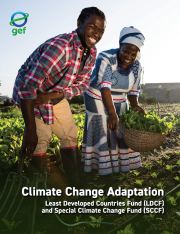
Climate Change Adaptation
Climate change poses a growing threat to all human and natural systems on our planet. International efforts are intensifying to prepare for rising seas, higher temperatures, worsening droughts, frequent floods, and other impacts that can affect water resources, crop yields, and the health of people…
Image
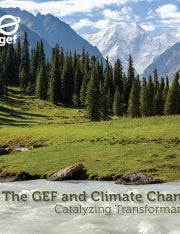
The GEF and Climate Change: Catalyzing Transformation
The Global Environment Facility is the largest and most experienced multilateral fund dedicated to addressing climate change and threats to nature around the world. The two climate change adaptation funds it manages - the Least Developed Countries Fund (LDCF) and Special Climate Change Fund (SCCF…
Image
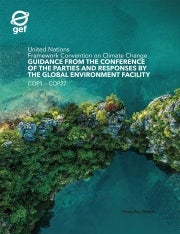
UNFCCC Guidance from the COPs and Responses by the GEF: COP1 - COP27
The GEF continually incorporates guidance from the United Nations Framework Convention on Climate Change (UNFCCC) Conference of Parties into its programs and operations, as described annually in its report to the COP. This booklet summarizes all guidance to the GEF dating from the first COP to…
Image
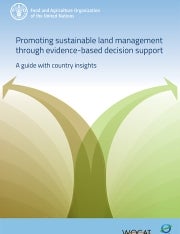
Promoting sustainable land management through evidence-based decision support
This publication is a product of the GEF-funded Food and Agriculture Organization project ‘Decision Support for Mainstreaming and Scaling Out Sustainable Land Management (DS-SLM)’ which has developed a decision support framework (DSF). The DSF integrates experience from work with land degradation…
Image
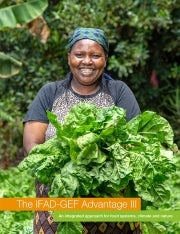
The IFAD-GEF Advantage III: An integrated approach for food systems, climate, and nature
The Global Environment Facility is the financial backbone of multilateral environmental agreements for a "healthy planet and healthy people." Agriculture, with its substantial carbon and ecological footprint, holds immense potential for transformation. Small-scale farms contribute to…
Image
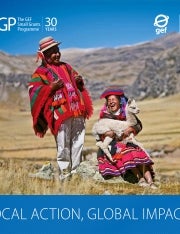
Local Action, Global Impact
This is a commemorative publication to celebrate the GEF Small Grants Programme's (GEF SGP) 30 years of local action, global impact. The publication highlights the important role of local communities, civil society and Indigenous Peoples, youth, women, and persons with disabilities in addressing…
Image
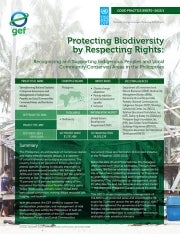
Good Practice Brief: Protecting Biodiversity by Respecting Rights
The Philippines, an archipelago of numerous islands and many ethnolinguistic groups, is a tapestry of cultural diversity and unique ecosystems. The country harbors 20 percent of known plant and animal species, making it critically important to global environmental benefits. Yet, between the 1930s…
Image
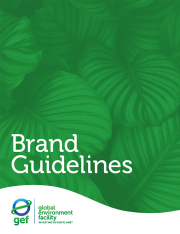
Brand Guidelines
These brand guidelines feature an updated logo and replace previous graphic standards. The guidelines establish a system for the consistent usage of the GEF’s visual identity: the logo, color scheme, typography, and other graphic elements that enable audiences to easily recognize and identify the…
Image

GEF-8 Corporate Scorecard - June 2023
The GEF-8 Corporate Scorecard is a comprehensive report on the performance of the Global Environment Facility during the GEF-8 period. In particular, the Scorecard reports on the progress made towards the achievement of the GEF-8 targets. It also looks at how the GEF is utilizing resources…
Image
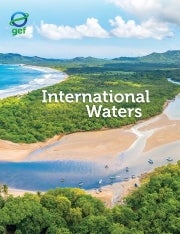
International Waters
Aquatic ecosystems face unprecedented threats. Ocean ecosystems are facing multiple pressures, ranging from climate change and acidification to pollution, habitat loss, and excessive fishing. Freshwater ecosystems face multiple stresses. These range from alteration to the hydrological cycle due to…